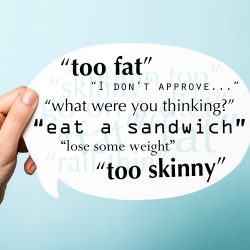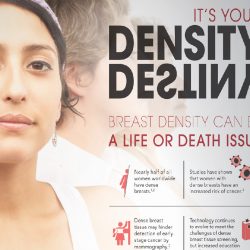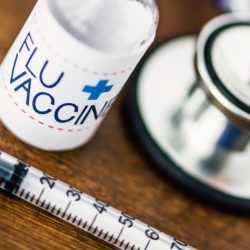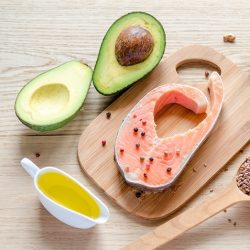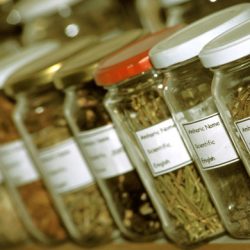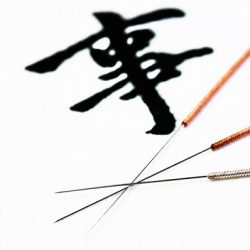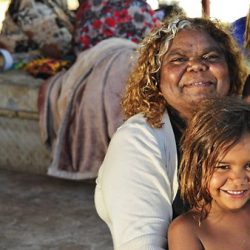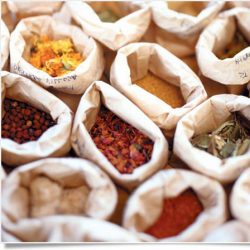Less fatigue and better recovery of cognitive abilities such as learning and memory. These may be the results of growth hormone treatment after a stroke, an experimental study of mice published in the journal Stroke suggests. "We hope that this work can pave the way for clinical studies involving the use of human growth hormone as treatment in the rehabilitation phase … [Read more...]
Study challenges previous findings that antidepressants affect breastfeeding
New research does not support the previously observed negative impacts of antidepressant use on breastfeeding. In the British Journal of Clinical Pharmacology study, use of serotonin reuptake inhibitors in late pregnancy was not linked with an increased risk of women experiencing low milk supply. The study found that women with an underlying psychiatric illness appeared … [Read more...]
Top Sports Leagues Heavily Promote Unhealthy Food And Beverages, New Study Finds
The majority of food and beverages marketed through multi-million-dollar television and online sports sponsorships are unhealthy -- and may be contributing to the escalating obesity epidemic among children and adolescents in the U.S., warn social scientists from NYU School of Medicine and other national academic health institutions. The descriptive study publishes online in the … [Read more...]
There’s proof body shaming can be majorly detrimental to women’s health
Many, many women dread going to the doctor's office, knowing they'll be weighed and then potentially criticized for their appearance — and that's affecting their healthcare. While doctors are obviously supposed to tell their patients when they're making unhealthy decisions, which includes discussing weight gain, much of the conversation surrounding weight can be … [Read more...]
Medical scientists discover potent method for improving drug-free fertility treatment
For those facing infertility, IVF has long been the established option to have a baby. Now Australian and Belgian medical scientists have discovered how to improve a woman's chances of becoming pregnant using a less invasive and cheaper alternative. The innovation, which has already undergone pre-clinical testing, uses growth factors to enhance an existing fertility … [Read more...]
Soluble corn fiber can help young women build bone, & older preserve bone
Supplementing with soluble corn fiber at two critical times in a woman's life -- adolescence and post-menopause -- can help build and retain calcium in bone, according to new research from Purdue University. "We are looking deeper in the gut to build healthy bone in girls and help older women retain strong bones during an age when they are susceptible to fractures," said … [Read more...]
Asthma is associated with polycystic ovary syndrome and excess weight
Among reproductive-age women, polycystic ovary syndrome (PCOS) as well as overweight and obesity are independently linked with asthma, new preliminary research from Australia suggests. "A greater proportion of women with polycystic ovary syndrome report asthma, and the results of this study suggest that asthma is associated with PCOS and excess weight," said lead author … [Read more...]
Breast density matters in detection of breast cancer
Almost 8% of women have extremely high breast density, which can make it harder for health professionals to detect breast cancer on a screening mammogram. These women are also more likely to develop breast cancer in the future. This is the warning from a new Australian alliance of breast cancer researchers, who are working together to raise awareness of the issue in the … [Read more...]
Seasonal influenza vaccination during pregnancy may reduce risk of stillbirth
Seasonal influenza vaccination may guard against stillbirth, a new study published in Clinical Infectious Diseases and available online suggests. Researchers in Western Australia analyzed data from nearly 60,000 births that occurred during the southern hemisphere's 2012 and 2013 seasonal influenza epidemics, and found that women who received the trivalent influenza vaccine … [Read more...]
Obesity May Be A Disease Of The Brain
Obesity may ultimately be a disease of the brain, involving a progressive deterioration of various cognitive processes that influence eating. Researchers at Macquarie University have now shown that memory inhibition -- the useful ability to 'block out' memories that are no longer useful, which depends on a brain area called the hippocampus -- is linked to dietary excess. … [Read more...]
Gaming + Exercise With Pokémon Go
Real-life positive health consequences of playing Pokémon Go -- a new GPS-based augmented reality game -- are happening across the nation. According to Matt Hoffman, DNP, clinical assistant professor at the Texas A&M College of Nursing, this quest to "catch 'em all" is great news for public health. I will travel across the land, searching far and wide Players, … [Read more...]
Omega-3s leads to lower risk of fatal heart disease
Blood levels of seafood and plant-based omega-3 fatty acids are moderately associated with a lower risk of dying from heart attacks, according to a new epidemiological study, published in JAMA Internal Medicine, led by Liana C. Del Gobbo, Ph.D., a postdoctoral research fellow in the division of cardiovascular medicine at Stanford University School of Medicine and senior author … [Read more...]
New insights on causes of sudden cardiac death in the young
Genetic testing has shed new light on the deaths of nearly 500 young Australians and New Zealanders who died from sudden cardiac death in a 3-year period, the New England Journal of Medicine reports today. "Sudden cardiac death in children and young adults has a devastating impact on families, care providers and the community," says the University of Sydney's Professor … [Read more...]
Long-lived breast stem cells could retain cancer legacy: Australian Study
Researchers from Melbourne's Walter and Eliza Hall Institute have discovered that breast stem cells and their 'daughters' have a much longer lifespan than previously thought, and are active in puberty and throughout life. The longevity of breast stem cells and their daughters means that they could harbour genetic defects or damage that progress to cancer decades later, … [Read more...]
Good diet boosts health but not wealth: Australian Study
The idea that a good diet means a healthy population with lower health costs only holds true when it comes to emergency care, a study shows. Researchers from Monash University, the National Defense Medical Centre, Taiwan, and the National Health Research Institutes, Taiwan, found that although men and women aged over 65 years who ate healthily had shorter stays in hospital, … [Read more...]
Metabolically healthy obesity: Australian Study
Australian researchers have defined some key characteristics of the metabolically healthy obese -- those obese individuals who remain free from type 2 diabetes and other disorders that usually associate with obesity. Their findings have implications for the treatment of type 2 diabetes, insulin resistance and obesity. Two in three Australian adults are overweight or obese. … [Read more...]
Conceptual and perceptual factors linked to what synesthetes ‘see’ when they smell: An Australian Study
Being able to identify a smell or flavour appears to be the most important factor in how some synesthetes 'see' them, according to a study just published in the journal Cognitive Neuroscience. The aim of the study was to explore just how much conceptual and perceptual factors contribute to what synesthetes 'see' when they smell. To do this, the trio of … [Read more...]
Poor diet and high blood pressure now number one risk factors for early death: Australian Study
A huge international study of global causes of death has revealed that since 1990, there has been a profound change in risk factors for death. In 1990, child and maternal malnutrition and unsafe water, sanitation, and lack of hand washing were the leading risks for death, but these have now been replaced by dietary risks and high blood pressure. The findings are from a new … [Read more...]
Low back pain not because of weather: Australian Study
Australian researchers reveal that sudden, acute episodes of low back pain are not linked to weather conditions such as temperature, humidity, air pressure, wind direction and precipitation. Findings published in Arthritis Care & Research, a journal of the American College of Rheumatology (ACR), indicate that the risk of low back pain slightly increases with higher wind … [Read more...]
Oral garlic not useful in treating vaginal thrush: Australian Study
In a world-first study, led by the University of Melbourne and the Royal Women's Hospital, researchers have found garlic does not significantly reduce vaginal candida (thrush). Led by University of Melbourne PhD candidate Cathy Watson also of the Royal Women's Hospital, the findings were published online in the British Journal of Obstetrics and Gynaecology. This study is the … [Read more...]
Traditional medicine: Environment change threatens indigenous know-how: Australian Study
The way indigenous cultures around the globe use traditional medicines and pass on knowledge developed over centuries is directly linked to the natural environment, new research has found. This makes indigenous cultures susceptible to environmental change, a threat that comes on top of the challenges posed by globalisation. "Traditional medicine provides health care for more … [Read more...]
Research examines acupuncture needle quality: Australian Study
The quality of needles used in acupuncture worldwide is high but needs to be universally improved to increase safety and avoid potential problems such as pain and allergic reactions, RMIT University researchers have found. The researchers looked at surface conditions and other physical properties of the two most commonly used stainless steel acupuncture needle brands. The … [Read more...]
Nutrition an issue for Aboriginal Australians: A Study
Nutrition has not been given enough priority in national Aboriginal and Torres Strait Islander health policy in recent years. This is the finding from a study published in the latest issue of Australian and New Zealand Journal of Public Health. Led by Jennifer Browne from La Trobe University, the study examined Aboriginal-specific health policies and strategies developed … [Read more...]
Chinese herbal medicine is dangerous: Australian Study
A herbal preparation prescribed by a Chinese herbal medication practitioner in Melbourne for back pain resulted in life-threatening heart changes, prompting a team of intensive care and emergency physicians to call for appropriate patient education by practitioners who prescribe complementary medications. Writing in Emergency Medicine Australasia, the journal of the … [Read more...]
Acupuncture does not improve chronic knee pain: Australian Study
Acupuncture did not provide any benefit in patients older than 50 years with moderate or severe chronic knee pain, according to a new research study published today in the Journal of the American Medical Association. Researchers from the University of Melbourne randomly assigned 282 patients with chronic knee pain to needle acupuncture, laser acupuncture, no acupuncture or … [Read more...]
Researchers question use of paracetamol for lower back pain and osteoarthritis: Australian Study
New research shows that paracetamol is ineffective in reducing pain, disability or improving quality of life for patients who suffer from low back pain or osteoarthritis of the hip or knee, and its use may affect the liver. The study published in the British Medical Journal provides new evidence that paracetamol is no better at treating low back pain than a placebo and its … [Read more...]
Skin based immunity secrets revealed: Australian Study
A team of international scientists has discovered a new mechanism by which immune cells in the skin function as the body's 'border control', revealing how these cells sense whether lipid or fat-like molecules might indicate the presence of foreign invaders. The findings could improve how we fight some infections, allergies and auto-immune diseases. The discovery by … [Read more...]
Extreme Exercise linked to Blood Poisoning: The Australian Study
Researchers have discovered that extreme exercise can cause intestinal bacteria to leak into the bloodstream, leading to blood poisoning. Experts at Monash University monitored people participating in a range of extreme endurance events, including 24-hour ultra-marathons and multi-stage ultra-marathons, run on consecutive days. "Blood samples taken before and after the … [Read more...]



